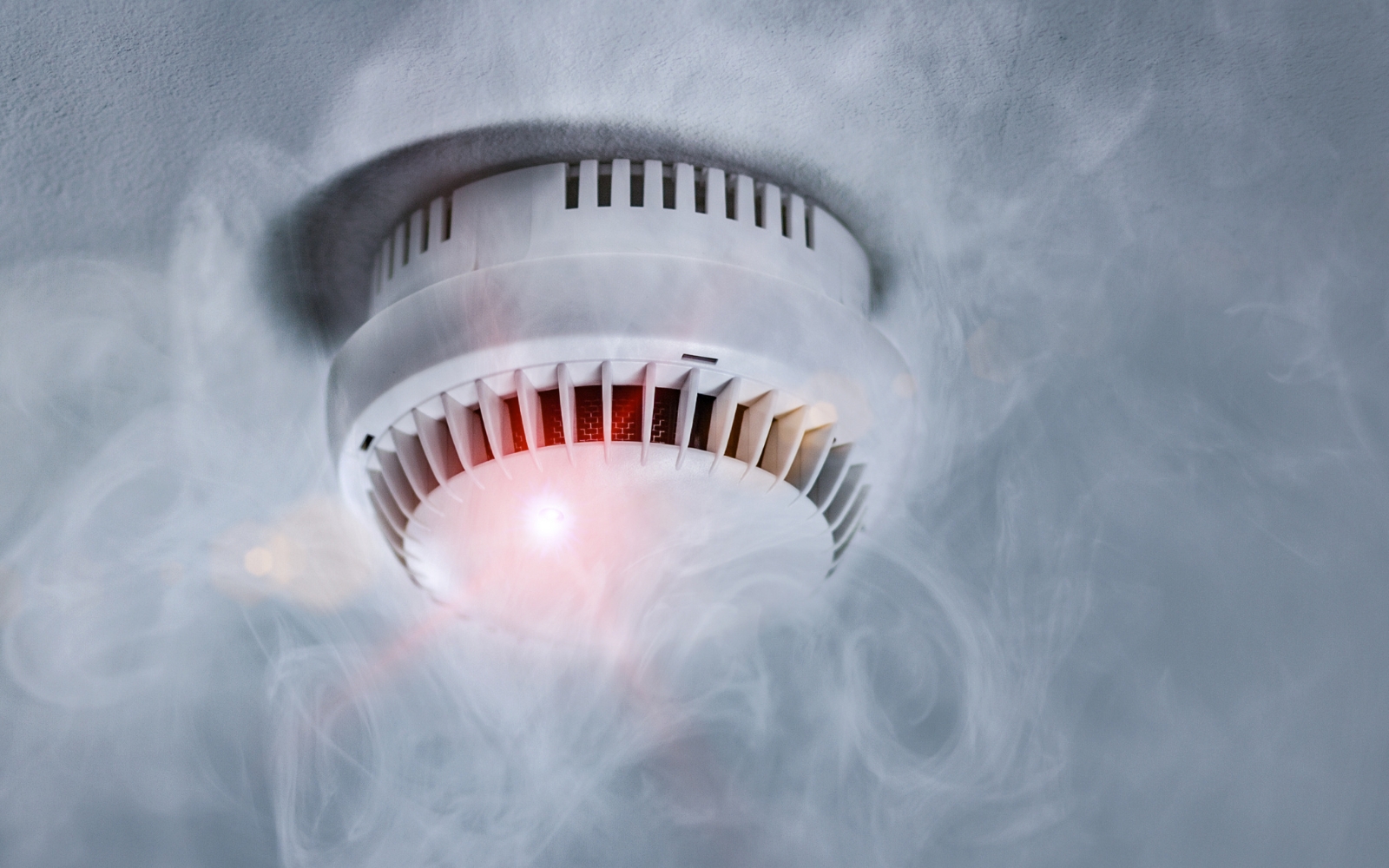
MED-EL
Published Nov 04, 2015 | Last Update Mar 19, 2025
The Best Smoke Detector for Hearing Loss
A standard smoke detector’s alarm is loud enough for everyone to hear, right? Unfortunately, that’s often not the case for many people with hearing loss. Most smoke alarms have a very high frequency, and people with hearing loss tend to lose the ability to hear high frequencies first.

The State of Smoke Detectors
Regulations vary depending on where you live. Some places require that smoke detector alarms go off at a minimum of 75 dB, but there are no regulations for which frequency they should sound at. Most alarms sound off at 3100 Hz, much higher than standard speech, which is around 1000 Hz.
This means that people with high-frequency hearing loss will have trouble hearing most smoke detectors. So why do alarms have such high frequencies? Most smoke detectors are small, so they have small speakers, and smaller speakers can’t put out low-frequency sounds at a high enough volume.
This affects millions of people with hearing loss, including those who have hearing aids or cochlear implants that they do not wear at night.
A study tested how well individuals with high-frequency hearing loss could hear smoke alarms.Bruck, D., & Thomas, I. R. (2008). Smoke Alarms for Sleeping Adults Who are Hard-of-Hearing: Comparison of Auditory, Visual, and Tactile Signals. Ear And Hearing, 30(1), 73–80. https://doi.org/10.1097/aud.0b013e3181906f89[1] It found that when a standard smoke alarm went off, participants would wake up only 56% of the time. Increasing this volume meant that participants would wake up about 92% of the time. That means 8% of participants still didn’t wake up even when a louder-than-normal alarm went off.
A Better Solution
It may seem like a loud, high-frequency sound is the best for a smoke detector, but for many people with hearing loss, that’s just not the case.
There are some other smoke detector options that don’t use sound, but most of them aren’t very effective. The aforementioned study found that bed shakers or pillow-shaking alarms woke up only about 80% of people with high-frequency hearing loss. The same study found that strobe lights could wake up only about 27% of these individuals.
The best solution is a smoke detector that plays a low, 520 Hz sound. When loud enough, this frequency can wake up 100% of participants and often does so within 10 seconds. That means even people with high-frequency hearing loss can hear the alarm.
There’s one downside to low-frequency alarms: the size. 520 Hz alarms tend to be larger than their higher-frequency counterparts. But saving more lives is definitely worth making a little more room for a larger smoke detector.
If you want to buy an alarm yourself, two available options are Lifetone and FireAngel.
References
-
[1]
Bruck, D., & Thomas, I. R. (2008). Smoke Alarms for Sleeping Adults Who are Hard-of-Hearing: Comparison of Auditory, Visual, and Tactile Signals. Ear And Hearing, 30(1), 73–80. https://doi.org/10.1097/aud.0b013e3181906f89
References

MED-EL
Was this article helpful?
Thanks for your feedback.
Sign up for newsletter below for more.
Thanks for your feedback.
Please leave your message below.
Thanks for your message. We will reply as soon as possible.
Send us a message
Field is required
John Doe
Field is required
name@mail.com
Field is required
What do you think?
© MED-EL Medical Electronics. All rights reserved. The content on this website is for general informational purposes only and should not be taken as medical advice. Contact your doctor or hearing specialist to learn what type of hearing solution suits your specific needs. Not all products, features, or indications are approved in all countries.
Hellen denning
April 04, 2025
Hi I’m having problems getting smoke alarm I can’t hear even wearing aids Fire brigade couldn’t help now been referred to adult social care Was offered strobe with under pillow vibrate but no good if in lounge I can’t smell an also partially sighted Hellwn
MED-EL
April 07, 2025
Hi Hellen, thanks for your comment. As the above article mentions, the best solution is a smoke detector that plays a low, 520 Hz sound. When loud enough, this frequency can wake up 100% of participants and often does so within 10 seconds. That means even people with high-frequency hearing loss and cochlear implants can hear the alarm. If you want to buy an alarm yourself, two available options are Lifetone and FireAngel. Kind Regards
Jerry Arnold
May 07, 2025
I don't think this would work if you had your cochlears removed for sleep and you are completely deaf?
MED-EL
May 08, 2025
Jerry, thank you for your comment. You may be interested in this Hearpeers forum where our recipients share their experiences with smoke and fire alarms: https://forum.hearpeers.com/topic/21702-what-do-wear-when-you%E2%80%99re-sleeping/#comment-81201 Kind Regards
Bill Perrick
May 08, 2025
I'll be receiving my 2nd CI in June. (1) With 2 CI's removed for sleep, which smoke / fire alarm would you recommend I use? The model in question is the Sonnett 3. (2) What is the "reliability" of recommended units. I really don't want the hassle of false alarms and / or defective unit (s)
MED-EL
May 08, 2025
Hi Bill, thank you for your questions. You may be interested in reading this Hearpeers forum where our recipients discuss options for fire alarms: https://forum.hearpeers.com/topic/21702-what-do-wear-when-you%E2%80%99re-sleeping/#comment-81201. Regarding the reliability of alarms, including fire alarms, we would recommend getting in touch with the specific company you may be thinking of purchasing it from as they can share this information with you. Kind Regards
paul st peter
July 02, 2025
How and where can I purchase the best smoke alarm for hearing impared people advertized by MED EL ?
MED-EL
July 03, 2025
Paul, thank you for your question. You can view purchasing options for both suggested options: https://lifetonesafety.com/ and https://www.fireangel.co.uk/homeowners/our-solutions/. Kind Regards

MED-EL

MED-EL



Conversation
4 Comments